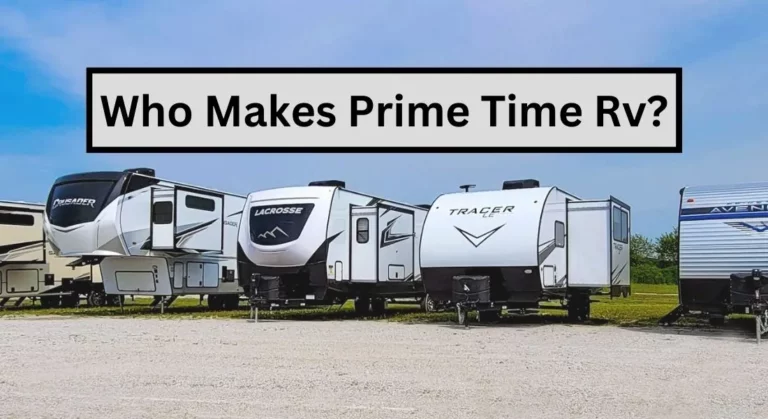How long can you run an RV air conditioner: a comprehensive discussion
RV travel offers the promise of adventure, exploration, and freedom. However, it’s no secret that when the sun is beating down, the interior of an RV can turn into a sweltering oven. Thankfully, the invention of the RV air conditioner has brought a breath of cool, refreshing air to travelers on the road.
In this comprehensive guide, we will delve into the question, “How long can you run an RV air conditioner?”
We’ll explore the nuances of RV air conditioners, their energy efficiency, power supply options, and routine maintenance tips to ensure you keep the rig cool even in the hottest of summers.

RV air conditioners: the beating heart of comfort
RV’s air conditioner or AC unit?
The terms RV air conditioner and AC unit are often used interchangeably, referring to the same appliance.
These cooling systems are a vital component of an RV’s interior, ensuring a comfortable environment when the temperatures soar.
Understanding RV air conditioners
RV conditioners are specialized air conditioning units designed to operate within the confines of recreational vehicles. They come in various sizes and configurations, allowing RV enthusiasts to choose the model that best suits their needs.
These cooling marvels work on the principle of heat exchange, drawing in warm air from the RV’s interior and expelling cool air, thereby creating a comfortable atmosphere.

RV’s air conditioner types
RV AC units come in different types and configurations, each with its unique features. The most common types include rooftop AC units, portable AC units, and ducted AC systems.
The choice depends on your RV’s design and personal preferences.
Energy effectiveness of RV air conditioners
Energy effectiveness is a crucial consideration when determining how long you can run an RV AC unit.
Most AC units are designed with energy effectiveness in mind, making them far more economical to run than older models.
To maximize the energy effectiveness of the RV’s air conditioner, you should:
- Properly maintain air filters: clean or replace the filters of air regularly to ensure the system doesn’t have to work harder to push the fresh air through clogged filters.
- Optimize fan speed: using the lowest speed of the fan that maintains your desired comfort level can significantly reduce energy consumption.
- Seal RV windows: ensure you have the RV’s windows closed to prevent warm air from entering and fresh air from escaping.
- Use vents of the roof: installing vents on the roof can help release hot air from your RV, reducing the load on your air conditioner.
- Solar power options: consider solar panels to power the AC unit. Solar radiation power can be an eco-friendly and cost-effective way to keep your RV cool.

How long can you run an RV conditioner?
To answer the question of how long you can run an air conditioner, let’s consider different scenarios based on the power supply options available to RV owners:
Battery power
Many RVs are equipped with deep-cycle batteries, which can power the AC unit for a limited time.
The duration depends on factors such as the battery’s capacity, age, and the AC unit’s energy consumption.
Typically, running an RV air conditioning unit solely on battery power is possible for a few hours.
Residential shore power
When you’re parked at a campsite with access to residential shore energy power, you can run the air conditioner continuously, ensuring a cool and comfortable environment.
The shore power provides a consistent and reliable power source for your AC unit.

Solar power
As mentioned earlier, solar panels can be a fantastic addition to your RV, providing an eco-friendly source of power. While they may not support continuous AC operation, they can help extend your AC’s runtime, especially during sunny days.
Built-in generator
Many RVs come with an integrated generator, which can power the conditioner with ease. Generators are a versatile power source, offering extended cooling periods without dependence on external power.

Electrical system
Some RVs have a robust electrical system that allows them to connect to a standard power supply, like a house or a campsite pedestal. This ensures continuous AC operation and is a common choice for full-time RVers.
It’s important to note that the duration you can run your RV conditioner on any power source also depends on the size and efficiency of the AC unit itself.
Larger RVs may have two AC units to cool different areas, and running both simultaneously may affect power consumption.

Factors influencing RV’s AC unit runtime
Several factors influence how long you can run an RV air conditioner to keep the camper cool.
Outside temperature
The ambient consistent temperature plays a crucial role. Hotter temperatures mean the AC unit needs to work harder, reducing the overall runtime.
AC unit efficiency
The energy effectiveness of the RV’s AC unit is a significant factor. Modern, energy-efficient units consume less power and can run longer.
Battery capacity
If using battery power, the battery’s capacity and condition are essential. Higher-capacity batteries and well-maintained batteries will allow for longer operation.

Generator fuel
When using an integrated generator, the fuel tank’s capacity will dictate how long the AC can run continuously.
Solar panel output
Solar panels can provide additional power during sunny days, but their output depends on sunlight availability.
Speed of the fan
As mentioned earlier, using a lower-speed of the fan can help extend the AC’s runtime.

Maintenance: keeping the RV air conditioner in top shape
Proper maintenance is key to ensuring the conditioner continues to run efficiently and effectively.
Neglecting maintenance can lead to decreased energy effectiveness and a reduced lifespan for the unit.
Here are some essential maintenance tips:
Clean air filters: regularly clean or replace the filters of air to ensure proper airflow and energy effectiveness.

Clean condenser and evaporator coils: dirty coils can hinder heat exchange. Periodically clean them to maintain optimal performance.
Check refrigerant levels: insufficient refrigerant can affect cooling efficiency. Consult a professional to check and replenish refrigerant levels when necessary.
Inspect ducts and vents: ensure there are no obstructions or leaks in the ducts and vents, which can reduce the unit’s efficiency.
Check for roof vents: vents of the roof should be in good condition and free from debris to allow proper air circulation.

FAQs
Here are presented some of the most commonly asked questions on the topic of this paper with comprehensive answers.
Can you run a RV AC 24 7?
You can run an RV AC 24/7 if you have a reliable power source like an integrated generator or access to residential shore power.
How long can AC run continuously?
An AC continuously running duration depends on factors like power source, AC efficiency, and battery capacity, ranging from a few hours to potentially all day.
How many batteries do I need to run my RV AC all day?
The number of batteries needed to run your RV AC all day varies based on the AC unit’s energy consumption and your specific battery capacity, but it often requires a substantial battery bank.
How long can an RV air conditioner run on a battery?
The runtime of an RV’s A on a battery depends on the battery’s capacity and the AC unit’s energy effectiveness, typically lasting a few hours to a portion of the day.
Does RV AC use a lot of electricity?
RV AC units can use a significant amount of electricity, particularly when running continuously.
Energy-efficient models and conservation practices can help reduce consumption.
Conclusion
In the world of RV travel, the question of how long you can run an RV conditioner is as critical as it is common.
RV conditioners have transformed life on the road, allowing travelers to stay cool and comfortable even in the most sweltering conditions.
Understanding the factors that affect your RV air conditioner’s runtime, such as energy effectiveness, supply of power options, and RV maintenance, is essential for a hassle-free journey.




![What is Campervan Kevin real name? [Biography of an interesting person]](https://camperask.com/wp-content/uploads/2023/12/What-is-Campervan-Kevin-real-name-biography-of-an-interesting-person-768x530.jpg)

